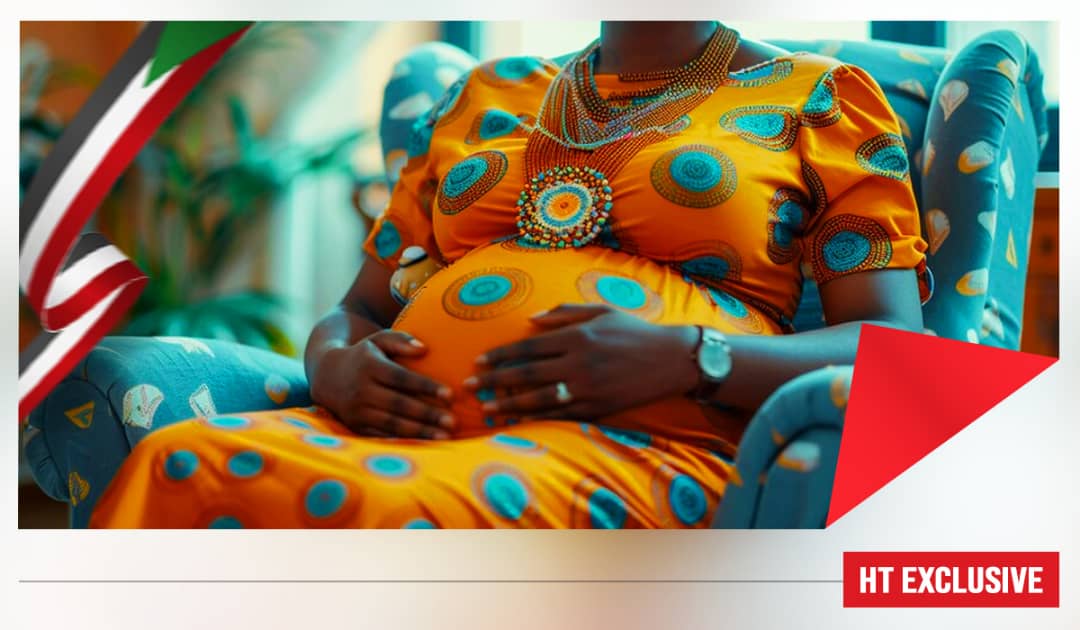By Enyichukwu Enemanna
These are not the best of times for women in Sudan as they have been largely impacted in the country’s civil war which broke out since April last year, amidst humongous humanitarian crisis that has affected millions of persons in the already economically disadvantaged country.
According to a new report by United Nations agency that focuses on women’s rights and social progress – the UN Women, at least 160,000 women have been documented to be pregnant, and will likely have to give birth under the most difficult circumstances over health care inadequacies.
The report added that majority of the pregnancies may have arisen from heightened conflict-related sexual violence, sexual exploitation and abuse, particularly in places such as Khartoum, Al Jazeera, Darfur and Kordofan states.
The war which sparked off 17 months ago between rival generals of the Sudanese Armed Forces and a former ally who heads the paramilitary Rapid Support Forces (RSF) has killed an estimated 20,000 people, with tens of thousands injured, even as women and children have remained most impacted groups, with an escalation in gender-based violence, most of which involve women and girls.
Health facilities have not been spared in the raging conflict that has seen medical workers displaced in large numbers. According to Doctors Without Borders, many healthcare centres are struggling to stay afloat amidst dwindling resources on ground.
Also corroborating the report of UN Women, the World Health Organization (WHO) reports that people lack access to health care services in Sudan because of insecurity, attacks on medical facilities and a shortage of medicines and other to medical supplies.
The UN health agency says critical services, including maternal and child health care, the management of severe acute malnutrition, and the treatment of patients with chronic conditions have been discontinued in many areas because 70% to 80% of hospitals are not functional.
“Across Sudan, women are dying from pregnancy or childbirth-related complications, whether or not those pregnancies are a result of gender-based violence, or whatever,” Dr. Margaret Harris, WHO spokesperson, said.
She added that childhood vaccinations have been disrupted, as well as disease surveillance and vector control, and this “has created the perfect conditions for the spread of disease outbreaks.” In her words, “Women are not getting the standard care that saves your life and saves the life of your child during childbirth or before childbirth.”
5.8 Million Internally Displaced Women
The UN has estimated that out of the total number of displaced persons, standing at 12.08 million, 5.8 million are women living in informal and unplanned thatch houses where they face risks of routine violations. While about 10.8 million of the total figure are displaced inside Sudan, an additional 2 million are refugees in neighbouring countries. This has made Sudan the largest displacement crisis-hit state in the world, the UN notes.
Additionally, Sudan is now also the world’s largest hunger crisis-hit nation, with nearly 26 million people facing acute hunger. The impact of the war has brought economic activities to their knees, making the chances of generating income nearly impossible despite the critical importance of meeting basic needs, especially feeding.
Women and girls in most Sudanese homes are the primary breadwinners, a situation that has exposed them further to the disproportionate impact of the crisis. As they seek to meet the basic needs of their families in the midst of war, they are at risk of violence both inside and outside their homes. “Many women and girls face many challenges, from the risk that we may face when looking for food, water, firwood if we have to go far. Also, when no food is served to our families, this can lead to fighting between couples”, a 23-year-old woman who simply gave her name as Jawahir shared her experience with emergency workers.
While expressing concern over the hunger crisis displaced women have contended with, the UN Women’s regional director for East and Southern Africa, Hodan Addou said, “With 64% of female-headed households experiencing food insecurity compared to 48% of male-headed households in 10 states, women and girls are eating least and last.” Additionally, she remarked that they are also disproportionately affected by the lack of safe and easily accessible water, sanitation and hygiene (WASH).
Apart from the horrendous sexual violations, hunger and health implications that have come with the prolonged crisis against the women, (and children) they have also faced psychological trauma that may stick in their heads for longer part of their lives. “Many of them are seeing their loved ones killed in front of their eyes. They have seen brutal sexual violence against children, against women used as a way of putting more trauma, more fear on communities,” the UN says.
“Fight For 100 Years”
Several efforts by the international community to find a lasting peace and rebuild the country facing massive destruction of infrastructure has not yielded any positive outcome.
In August, the United States opened talks in Switzerland, seeking an end to the human suffering and to achieve a lasting cease-fire. The talks were co-hosted by Saudi Arabia and Switzerland, with the African Union, Egypt, the United Arab Emirates and the United Nations being part of the Aligned for Advancing Lifesaving and Peace in Sudan Group (ALPS).
While the paramilitary Rapid Support Forces delegation showed up for peace talk with the backing of its commander, Mohamed Hamdan Dagalo, the Sudanese army chief and the country’s de facto leader, Abdel Fattah al-Burhan whose troops have been battling RSF in the past 17 months expressed lack of confidence with the format and did not attend, he instead maintained telephone contact with the mediators.
Burhan opted to “fight for 100 years” rather than sitting on the same table of negotiation with Dagalo, an erstwhile trusted ally. “We will not go to Geneva, we will fight for 100 years,” he vowed.
Though the United States had accused both the Sudanese Arm Forces and RSF of war crimes, the paramilitary organisation has indicated interest for peace talks as against Burhan’s Sudanese army that has adamantly ignored all negotiation invitations. In January this year, he also ruled out peace talks and called his rival a “clown,” “traitor” and “coward.” He rejected the ceasefire deal Dagalo signed in Ethiopia’s capital, Addis Ababa.
Burhan at that time also criticized leaders of African countries including South Africa, Ethiopia and Kenya who received Dagalo as a statesman during his visits. “He is humiliating the Sudanese people, he is killing them, insulting them, and some people are clapping for him and laughing with him,” Burhan said in reference to his rival, Dagalo both of who are struggling for control of power in the country and its resources.
Protecting Women In The Crisis-Ridden Country
There has been an increased call for urgent action to protect women and girls, and to provide them with access to food, safe water, and sexual and reproductive health services across Sudan as the war seems endless.
This was also prominently highlighted in the UN Women report where it called for justice for victims of war crimes in the country. “We are calling for protection for all women and girls, in particular the retributions that they need to address. We are calling for accountability and the provision of justice to all of the victims.”
It also warned that the high-level sexual violence and exploitation being used as a weapon of war is preventing women from accessing much-needed resources and the psychosocial support they need because of the chaotic nature of the conflict.


































